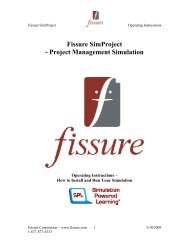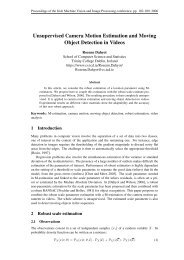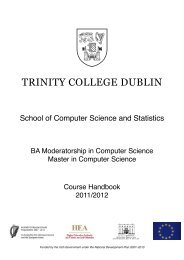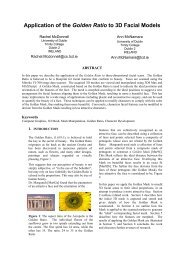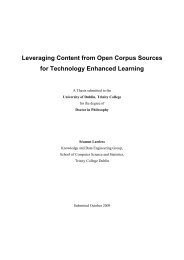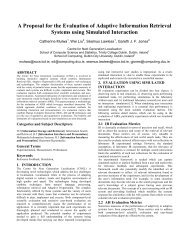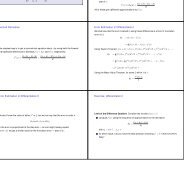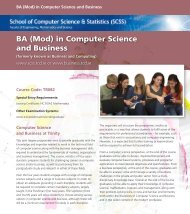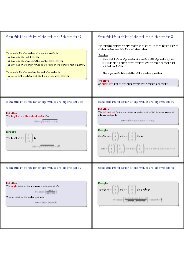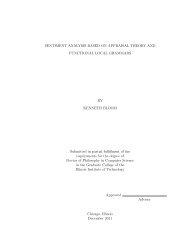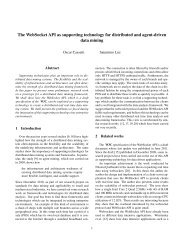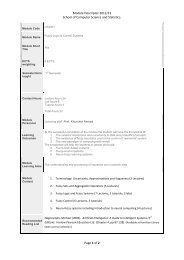Situations from events to proofs 1 Introduction
Situations from events to proofs 1 Introduction
Situations from events to proofs 1 Introduction
Create successful ePaper yourself
Turn your PDF publications into a flip-book with our unique Google optimized e-Paper software.
We can express the persistence of an inertial fluent ϕ by introducing a<br />
non-inertial fluent fϕ that marks the application of a force against ϕ. The<br />
constraint<br />
ϕ □ ⇒ (□ ϕ + fϕ □ + R □)<br />
then says that ϕ persists <strong>to</strong> the next moment unless some force is applied against<br />
ϕ or R coincides with ϕ. 5 The persistence of the postcondition in(p, d) of L 0<br />
in (11) arises <strong>from</strong> the assumption that no force is applied against the fluent<br />
at the end of L 0 . Instances where a force is applied against the postcondition<br />
surface as cases such as (S4) of non-persistence.<br />
(S4) Pat has been <strong>to</strong> Dublin (̸|− Pat is in Dublin)<br />
The formation of the Reichenbachian perfect extends the event’s temporal<br />
stretch, yielding a situation greater than the event. To extract the information<br />
contained in a string, it is useful <strong>to</strong> relax the strict temporal match-up in<br />
L ☎ L ′ ,<br />
weakening its second argument L ′ <strong>to</strong> the set L ′□ of strings in L ′ with any<br />
number of leading and trailing □’s deleted or added<br />
L ′ □<br />
def<br />
= □ ∗ unpad(L ′ )□ ∗<br />
= {s | unpad(s) ∈ unpad(L ′ )} .<br />
We define weak subsumption ◮ by<br />
L◮L ′<br />
def<br />
⇐⇒<br />
L ☎ L ′ □<br />
iff unpad(L) ⊆ L& □ L ′ .<br />
Weak subsumption compares information content in the same way as ☎<br />
L◮L ′ iff (∀s ∈ L)(∃s ′ ∈ L ′ ) s◮s ′ .<br />
but without insisting that strings have the same length<br />
s◮s ′ iff (∃s ′′ ) unpad(s ′′ ) = unpad(s ′ ) and s ☎ s ′′ .<br />
5 Forces that make ϕ true appear in the backward persistence constraint<br />
□ ϕ ⇒ ( ϕ □ + fϕ □)<br />
stating that if ϕ is true, it must have been so previously or else was forced <strong>to</strong> be true. The<br />
fluents fϕ and fϕ were assumed identical in [FN05]. Differentiating them allows us <strong>to</strong> formulate<br />
the constraint “succeed unless opposed”<br />
(suo) fϕ □ ⇒ (□ ϕ + fϕ □)<br />
saying an unopposed force on ϕ brings ϕ about at the next moment. Were fϕ and fϕ the<br />
same, (suo) would have no bite (denoting, as it would, the universal language Pow(Φ) ∗ ).<br />
An early paper on the relevance of inertia <strong>to</strong> linguistics is [Dow86]; later works include<br />
[Ste00] and [LH05], where a different formal approach <strong>to</strong> inertia is pursued.<br />
15



